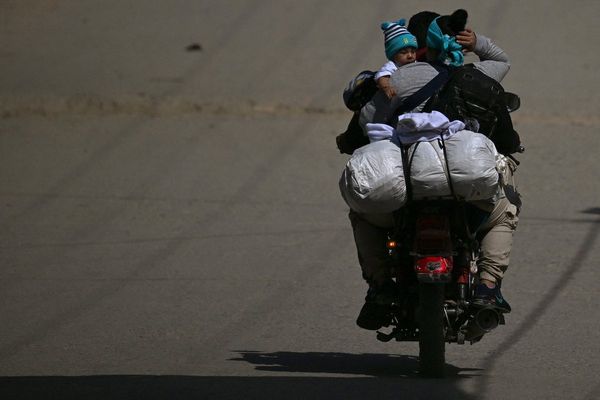
Peter De Waal remembers fondly the last time his partner smiled before he died.
De Waal was sitting by Peter “Bon” Bonsall-Boone’s bedside in Sydney, reading a letter. The letter contained long-awaited news: Bonsall-Boone’s second conviction for expressing his sexuality had finally been quashed.
Bonsall-Boone was first convicted at age 19 of having consensual sex with a man in 1957 – and since then, he had been coping with the consequences.
He was kicked out of his studies to become an Anglican priest and his options for work were severely limited after being convicted twice on different offences. In 1969, De Waal and Bonsall-Boone struggled to get a home loan because of the convictions. Three years later, Bonsall-Boone lost his job again after he and De Waal shared a kiss broadcast as part of an ABC documentary. It was the first same-sex kiss by men to be aired on Australian TV.
“[The convictions] caused us a huge amount of difficulty and pain, we always felt like second class citizens,” says 86-year-old De Waal, who was never convicted himself.
On Thursday, the NSW premier, Chris Minns, delivered a formal state apology to the estimated thousands, who like Bonsall-Boone, were convicted under laws that criminalised people for expressing their sexuality, ranging from buggery to assault and gross indecency charges. The apology came 40 years after homosexuality was decriminalised in NSW under former premier Neville Wran.
“It’s bittersweet,” De Waal told Guardian Australia ahead of the apology being delivered. He wished Bonsall-Boone were alive to attend the apology.
“It would be wonderful if I could sit in parliament with Bon and hold hands.”
A climate of fear and prejudice
The Equality Australia chief executive, Anna Brown, says it is not known exactly how many people were convicted under the unjust laws but reports suggest it could be “many thousands” who faced penalties ranging from fines to imprisonment.
“These laws created a climate of fear and prejudice that our community still grapples with in 2024,” she says.
NSW was the last state to formally apologise to people prosecuted under the laws. Victoria and South Australia apologised in 2016, while Queensland, Western Australia and Tasmania followed the next year.
In 2014, amendments to the NSW Criminal Records Act cleared the way for people convicted under the laws to have their convictions quashed. However, few have had their convictions expunged, with only 28 people having made a successful application.
The amendment also didn’t include those convicted for indecent exposure, which De Waal says was a common charge for men targeted by police while on gay beats. This was the conviction that Bonsall-Boone had fought to get quashed in 2017.
During the apology, Minns acknowledged it would not fix past wrongs, and that there was still more work to be done to achieve equal rights for the LGBTQI+ community.
“We’re here to apologise for every life that was damaged or diminished or destroyed by these unjust laws,” he said during his speech.
“We are sorry. And as a state, we told you, you were wrong. But the truth is, you are never wrong. These laws were wrong.”
Environment minister and leader of the government in the upper house, Penny Sharpe, said ahead of the apology it was also a chance to thank those who have fought for change.
“Decriminalisation of homosexuality was a significant step that smashed through the wall of laws that allowed discrimination against gay men and the LGBTQ community,” she said.
The need for meaningful change
But the apology came too late for many. Robert French , who attended the apology on Thursday, says many of the people who were convicted under the laws have since died.
Alongside leading gay rights activist Lex Watson, who died in 2014, and many others, French was part of a 1983 community campaign to get the laws criminalising homosexuality changed.
French attended the “gay rights embassy” that was set up by the Gay Solidarity Group opposite then premier Wran’s home after police raids on a gay club.
“Wran was onside, but he couldn’t get it up in parliament,” French says.
That year, French was one of 28 people who signed statutory declarations admitting to engaging in buggery and seeking arrest. Watson concocted the idea to draw attention to the need for law reform.
French and Watson then wrote to every member of parliament explaining why they were willing to put themselves at risk of arrest to get the laws changed. In 1984, both the Labor and Liberal parties supported a bill to decriminalise homosexual acts.
“The apology closes the circle,” French says. “But of course, there are still issues. It upsets me that 40 years on young people still have difficulty with their identity.”
After the special commission of inquiry into LGBTQ+ hate crimes last year, the commissioner, justice John Sackar, found that police had failed to properly investigate potential crimes and must rebuild trust with the community.
The government has it said will not consider compensation for people who were jailed under the homophobic laws.
De Waal says compensation would “make good” on the apology but he believes Bonsall-Boone would have wanted the government to instead follow its words with action by amending other laws which still discriminate against LGBTQI+ people.
In particular, he wants to see NSW pass the LGBTQ+ equality bill, which would disallow religious schools and organisations discriminating against LGBTQ+ people, among other reforms. Advocacy group Pride in Protest organised a protest that ran during the apology to urge the passing of the bill.
“To me that would be much more meaningful,” De Waal says. “Apologies are wonderful, they’re heartfelt, but in the end, they’re words.”







